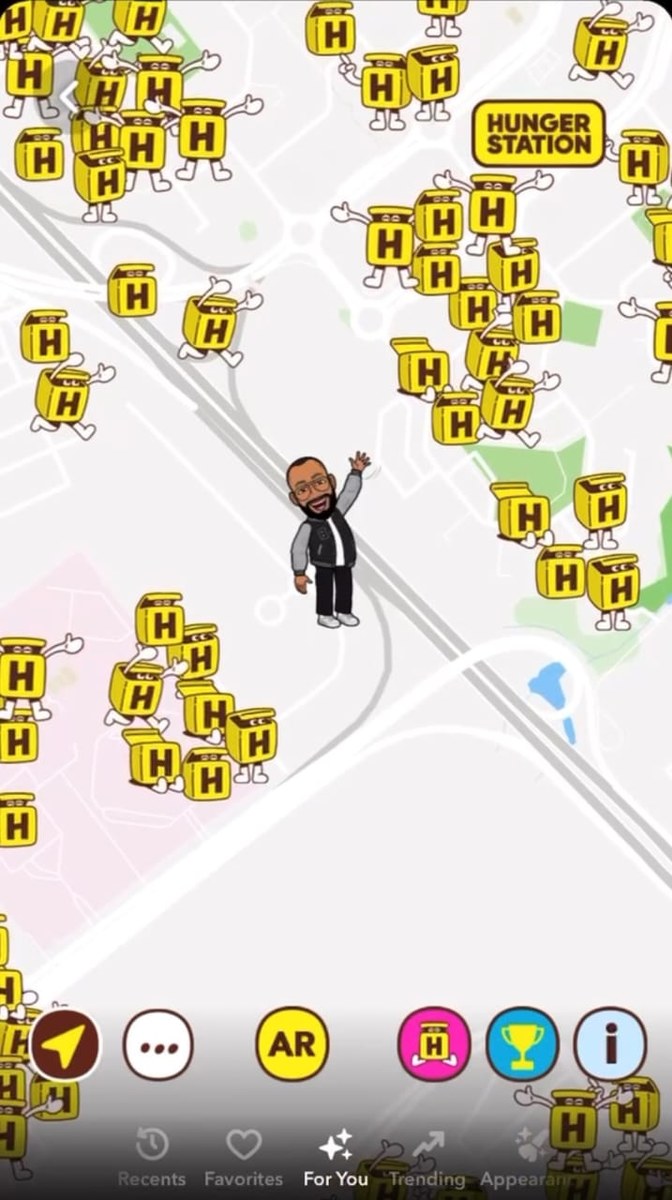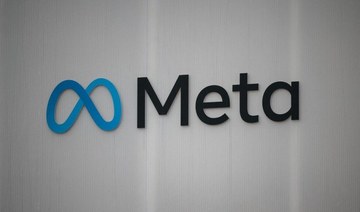LONDON: With Arab football fans glued to their television sets this month, despite the exit of the region’s four flag bearers from the World Cup, one Abu Dhabi-based sound studio is profiting from the football fever sweeping across the Middle East.
Hassan Ramli, the CEO of E11 Entertainment (E11E) helped to localize the FIFA 2018 game for an Arab audience so that local fans will be able to play an Arabic version of the game featuring the voice of well-known Emirati sports commentator Faris Awad.
The game was released last September by EA Sports and sold 10 million copies in the first eight weeks.
Now E11E is looking for further opportunities to produce Arabic-speaking video games for the region.
“We have been approached by another huge name in the gaming industry. It is definitely a way to open up this market in the Arab region,” said Ramli in an interview with Arab News.
“That’s why video companies localize their games to different languages because you are opening up a new market to its full potential.
“It is in the best interests of game developers, and at same time it is a great opportunity to create more engagement with players,” he said.
The gaming industry has ballooned in the region in recent years, with as many as 578 million gamers across the Middle East and Africa according to data from Newzoo. The expansion of the market is also outpacing other regions, thanks in part to the region’s youthful demographics.
Ramli moved to Abu Dhabi four years ago from the US where he worked on various films and TV shows including “Pop Idol” and “Shrek 2”.
He spearheaded the launch of E11E’s “Game Localization Lab” last week, which aims to build on the success of the company’s work on the FIFA game.
It is positioning itself as a one-stop shop for producing and adapting audio content suitable for the Arab world. This includes translating audio, producing graphics as well as sound editing and music scoring.
“(It is) a division we just launched with a sister company that specializes in translation. Now we can offer the whole process,” Ramli said.
“A video game developer can just send us the scripts they have in English and we will be able to localize it to any accent in Arabic. We can record it, encode the files and deliver it.
“This includes even hiring talent and voice actors,” he added.
Ramli said the company’s work with FIFA has set the ‘standard’ for the type of work the company can produce.
“I am a huge FIFA fan and it was a proud moment to do FIFA because I have been playing (the game) for over 20 years. It was a very exciting project to have,” said Ramli.
He added that as well as working on sound projects with big governmental companies in Abu Dhabi and Dubai, the company has also recently worked with a well-known Bollywood singer on a new movie soundtrack.
E11E is based in Abu Dhabi’s media free zone known as Twofour54, which is promoting itself as a major Middle East hub for producing media content.
“I believe what Twofour54 is doing is so valuable for the region. Definitely Abu Dhabi is becoming a very important hub for media creation. It is making it so easy for talent to come and just worry about being creative and contributing to the region,” Ramli said.
The free zone has licensed more than 550 Arabic and international media companies such as Sky News Arabia, Flash Entertainment and M&C Saatchi.
Studio behind Arabic FIFA 2018 wants more localized video games
Studio behind Arabic FIFA 2018 wants more localized video games

- Hassan Ramli the CEO of E11 Entertainment (E11E) helped to localize the FIFA 2018 game for an Arab audience
- E11E is looking for further opportunities to produce Arabic-speaking video games for the region
Israeli officials seize AP equipment and take down live shot of northern Gaza, citing new media law

- Authorities accuse AP of providing images to Al Jazeera
- The seizure followed a verbal order Thursday to cease the live transmission, which the news organization refused to do
The Qatari satellite channel is among thousands of clients that receive live video feeds from the AP and other news organizations. The AP denounced the move.
“The Associated Press decries in the strongest terms the actions of the Israeli government to shut down our longstanding live feed showing a view into Gaza and seize AP equipment,” said Lauren Easton, vice president of corporate communications at the news organization. “The shutdown was not based on the content of the feed but rather an abusive use by the Israeli government of the country’s new foreign broadcaster law. We urge the Israeli authorities to return our equipment and enable us to reinstate our live feed immediately so we can continue to provide this important visual journalism to thousands of media outlets around the world.”
Officials from the Communications Ministry arrived at the AP location in the southern town of Sderot on Tuesday afternoon and seized the equipment. They handed the AP a piece of paper, signed by Communications Minister Shlomo Karhi, alleging it was violating the country’s foreign broadcaster law.
Shortly before the equipment was seized, it was broadcasting a general view of northern Gaza. The AP complies with Israel’s military censorship rules, which prohibit broadcasts of details like troops movements that could endanger soldiers. The live shot has generally shown smoke rising over the territory.
The seizure followed a verbal order Thursday to cease the live transmission — which the news organization refused to do.
“In accordance with the government decision and the instruction of the communications minister, the communications ministry will continue to take whatever enforcement action is required to limit broadcasts that harm the security of the state,” the ministry said in a statement.
Israeli officials used the law to close down the offices of the Qatar-based broadcaster on May 5 as well as confiscating the channel’s equipment, banning its broadcasts, and blocking its websites.
Israel has long had a rocky relationship with Al Jazeera, accusing it of bias against the country. Israeli Prime Minister Benjamin Netanyahu has called it a “terror channel” that spreads incitement.
Al Jazeera is one of the few international news outlets that has remained in Gaza throughout the war, broadcasting scenes of airstrikes and overcrowded hospitals and accusing Israel of massacres.
The war in Gaza began with a Hamas attack in Israel that killed 1,200 people and saw 250 others taken hostage. More than 35,000 Palestinians have been killed since then, according to Gaza’s Health Ministry, which doesn’t distinguish between civilians and combatants in its count.
Media watchdog ‘welcomes’ arrest warrants for Hamas and Israeli leaders

- ICC’s action is a promise to end impunity for the deaths of journalists, says Committee to Protect Journalists
LONDON: The Committee to Protect Journalists welcomed the International Criminal Court’s announcement on Monday that it was seeking arrest warrants for leaders of both Hamas and Israel.
Israeli Prime Minister Benjamin Netanyahu, Defense Minister Yoav Gallant, and Hamas leaders Yahya Sinwar, Mohammed Diab Ibrahim Al-Masri, and Ismail Haniyeh might face prosecution for war crimes and crimes against humanity.
“The ICC’s application for arrest warrants for crimes against humanity in Israel and Palestine recognizes atrocities committed against civilians,” said CPJ CEO Jodie Ginsberg.
“The civilian deaths include an unprecedented number of journalists killed since Oct. 7. The ICC’s action is a promise for an end to the impunity that has historically plagued the killing and persecution of those who write the first draft of history.”
Over 100 journalists and media workers have been killed since the beginning of the conflict last October, the vast majority of them in Gaza by Israeli forces.
CPJ reported that the conflict has claimed the lives of more journalists in three months than have ever been killed in a single country over an entire year since record-keeping began, underscoring the tragic toll this war has had on journalists.
The watchdog, along with corroborating investigations by Reuters, AFP, and Human Rights Watch, has documented at least three instances of journalists killed by Israeli forces that involved deliberate targeting.
An additional 10 cases may also involve deliberate targeting, which, according to international law, could constitute war crimes.
CPJ has urged the ICC to investigate these killings and called on Israel to grant investigators unrestricted access to Gaza, highlighting a disturbing pattern of systematic killings of Palestinian journalists that have consistently gone unpunished.
The announcement of potential arrest warrants for Netanyahu was met with strong reactions.
Netanyahu called the decision “a moral outrage of historic proportions,” while US President Joe Biden rejected the ICC’s application altogether, adding that “there’s no equivalence between Israel and Hamas.”
Meta Oversight Board set to rule on ‘genocide’ video case, two others

- Meta submitted cases as part of goal to create policy on criminal allegations based on nationality
- Decision to help Meta better navigate critical questions at a crucial time, board spokesperson told Arab News
LONDON: The Meta Oversight Board announced on Tuesday that it is reviewing three cases, including one involving a user accusing Israel of committing “genocide” and another concerning a Facebook comment in Arabic.
Meta, which submitted the cases as part of its review system aimed at creating a policy on criminal allegations based on nationality, said it removed the posts for breaching its Hate Speech Community Standards.
The first case involves a user’s reply on Threads, featuring a video that includes accusations of “genocide” and claims that “Israelis are criminals.”
The other two cases involve a December speech in which a user called all Russians and Americans “criminals” and a recent post in which a user stated that “all Indians are rapists.”
An Oversight Board spokesperson told Arab News: “Tensions in the region, and increasingly around the world, are dominating the discussion online.
“It’s vitally important that when looking at these issues, Meta gets the balance right and works to protect safety, without unduly limiting the ability of people to speak out about the abuses they see or the frustration they experience.”
The spokesperson added that while the board cannot review every appeal, it selects those of critical importance to public discourse “to help Meta better navigate these critical questions at a crucial time.”
Meta said the three posts were removed after human review for “targeting people with criminal allegations based on nationality.”
Despite its decision, Meta referred the cases to the Oversight Board to address the challenge of handling criminal allegations directed at people based on their nationality, as they might be interpreted as attacks on a nation’s policies.
The board’s decision to review these cases comes as social media platforms have seen an uptick in violent, hateful, and misleading content since the start of Israel’s war on Gaza last October.
The Oversight Board reported a nearly 2,000 percent increase in appeals from the region in the first three weeks after Oct. 7, with many complaints about content inciting violence and promoting hate speech.
The moderators have called for public comments addressing the platform’s hate speech policy in relation to users’ ability to speak out against state actions during times of conflict and Meta’s human rights responsibilities in relation to content targeting users based on nationality.
They also requested insights into potential criteria for determining whether a user is targeting a concept or institution rather than people based on nationality.
In the coming weeks, the board members will deliberate on the cases.
Facebook and its parent company Meta have previously been accused of deliberately censoring pro-Palestine content. Human Rights Watch stated last December that Meta routinely engages in “six key patterns of undue censorship” of pro-Palestine posts.
Recently, the board introduced a new 30-day expedited review mechanism and will rule on whether the pro-Palestinian phrase “from the river to the sea” is considered “acceptable” speech.
In April, the board overturned Meta’s decision to leave up a Facebook post claiming that Hamas originated from the population of Gaza, comparing them to a “savage horde,” leading Meta to take the post down.
Report: Meta approved anti-Muslim political ads in India

- ICWI and Eko found Meta’s system failed to detect prohibited content in most cases
- Indian election sees surge in anti-Muslim, Hindu supremacist sentiment
LONDON: Tech giant Meta approved political advertisements on its platforms inciting violence and hate speech during India’s general election, a report released on Monday revealed.
The investigation, conducted by non-sectarian diasporic organization India Civil Watch International and corporate watchdog Eko, found that Meta, the parent company of Facebook and Instagram, allowed AI-manipulated political ads that spread disinformation and incited religious violence, particularly targeting Muslims.
The report found that Meta’s system failed to prohibit a series of inflammatory ads designed to mimic real-life scenarios, uploaded by ICWI and Eko.
The ads, submitted to Meta’s ad library, contained slurs towards Muslims in India, such as “let’s burn this vermin” and “Hindu blood is spilling, these invaders must be burned.”
Another ad featured Hindu supremacist language and false claims about political leaders, including an opposition leader allegedly wanting to “erase Hindus from India” and calling for their execution.
According to the report, all of the adverts “were created based upon real hate speech and disinformation prevalent in India, underscoring the capacity of social media platforms to amplify existing harmful narratives.”
Out of 22 ads submitted in English, Hindi, Bengali, Gujarati and Kannada, 14 were approved by Meta, while a further three were approved after minor tweaks that did not alter the overall provocative messaging.
Only five ads were rejected for violating Meta’s community standards on hate speech and violence.
The ads, which largely targeted Muslims, were immediately removed after approval by ICWI and Eko.
The organizations accused Meta of profiting from hate speech and failing to uphold its pledge to prevent AI-generated or manipulated content from spreading on its platforms during the Indian election.
Campaign spending for India’s elections, the largest and longest in the world, is estimated to reach $16 billion.
The report also claims that the approved ads violated India’s election rules, which ban election-related content 48 hours before polling begins and during voting.
Meta, which requires vetting approval for accounts running political ads, had already faced controversy during this year’s Indian elections.
A previous report by ICWI and Eko found that surrogate or “shadow” accounts aligned with political parties paid vast sums of money to disseminate unauthorized political ads on platforms.
Some approved accounts for running political ads were even up for sale in public Facebook groups with tens of thousands of members.
Many of these real ads endorsed Islamophobic tropes and Hindu supremacist narratives.
The tech giant has struggled for years with the spread of Islamophobic content on its platforms, raising concerns about Meta’s ability to enforce its policies and control the situation amid rising anti-Muslim sentiment in India.
Food delivery app HungerStation and Snapchat launch AR treasure hunt in Saudi Arabia

- Companies say the sponsored treasure hunt is a world first
- Great AR Hungerhunt is part of HungerStation rebranding campaign
LONDON: Food delivery app HungerStation has partnered with social media provider Snapchat to launch an immersive augmented reality treasure hunt on the platform.
The two companies said on Monday that the Great AR Hungerhunt, using Snapchat’s geofenced AR objects technology, is the first sponsored digital treasure hunt of its kind in Saudi Arabia and the world.
“Celebrating our rebranding with Snapchat marks a significant step in our journey of creativity and innovation,” said Mohammed Jifri, chief marketing officer of HungerStation.
“Through this partnership, we’re not just delivering food, but also delivering unforgettable digital experiences to our users.”

The initiative is part of HungerStation’s rebranding campaign following its $297 million acquisition by German multinational Delivery Hero in July 2023.
A leading food delivery app in Saudi Arabia, HungerStation unveiled its new brand identity in January.
HungerStation’s director of brand and communication, Ahmad Chatila, said the campaign merges technological innovation with marketing opportunities with the aim to connect the brand with youth by “offering a real-life experience and amazing game challenges.”

To participate, Snapchat users need to search for and collect HungerStation’s new branded boxes hidden around city maps to gain points using the AR map feature on Snapchat.
For users not based in Jeddah or Riyadh, a non-location minigame version is available that allows them to collect points too.



















